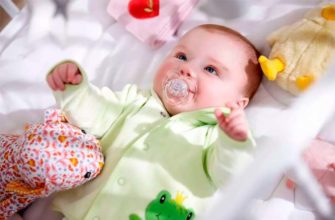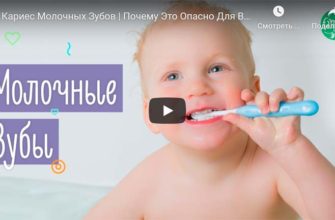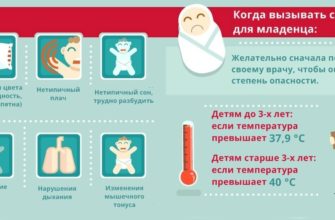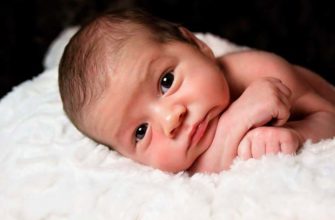Grandmothers and friends of a nursing mother argue that a breast-fed baby should be drowned with water. Only modern women usually follow the recommendations of pediatricians who are not advised to give extra drink to children up to six months. So does the baby need water or can it really hurt? You will find the answers in this article.

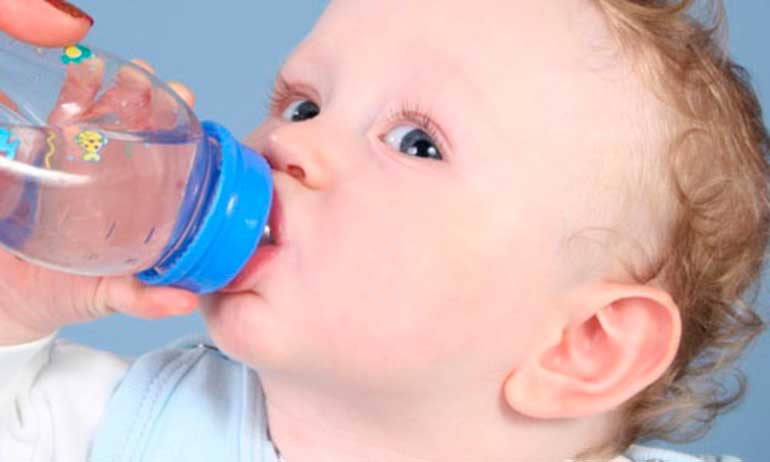
For a newborn, mother's milk is not just food, but also the best drink. It not only contains all the nutrients needed by the crumbs, but also by 87% consists of water. Breast milk also has important properties necessary for maintaining the normal digestion of the baby, which is different from simple drinking water.
- Pediatricians are allowed to milk babies under 4 months of age with milk or feed the mixture strictly in the presence of medical indications. It is simply impossible to do this at will, otherwise there is a risk of harming the health of the baby;
- In the summer heat or during an illness with a high body temperature, the baby should be given breasts more often. Children from 4 months to six months can already offer water in a cup, but do not need to force it to drink. For this age, no more than 60 ml per day are considered a safe dose of water.
[sc name = ”rsa”]
Breast milk - food and drink for the newborn
So provided by nature, that the baby receives breast milk almost immediately after birth. At the same time, the mother’s body after childbirth constantly adapts to the needs of the baby.
Mother's milk changes its composition depending on the age of the child, as well as in different situations. So, if for some reason the baby needs more fluid, he begins to attach to the chest more often and more often requires changing it.
As a result, an infant who is thirsty gets more front milk, and it is 88% water. Only it differs from ordinary water in that such a liquid does not wash out electrolytes from the body and maintains their optimal balance.
By the way, adults, when dehydrated, are also recommended to drink not ordinary water, but a solution of glucose (grape sugar) and mineral salts necessary for the normal functioning of the body. Front milk has just this composition: it contains lactose (milk sugar) and a whole set of mineral salts. Therefore, it not only eliminates the fluid deficiency in the baby’s body, but also replenishes the necessary electrolytes.
Even front and more fat rear milk contains many vitamins, enzymes, bioactive substances that stimulate the digestion of a young child. When he receives water or tea in addition to breast milk, the concentration of all beneficial substances decreases.Therefore, in the stomach and intestines of crumbs, protection against bacteria and the effects of enzyme deficiency is reduced.
Thus, a healthy baby with breastfeeding needs only breast milk up to beginning of feeding.
Can water heal?
Even doctors have not yet agreed on whether children under 4-6 months of age should be doped with water if they have a fever or have an intestinal infection. One way or another, giving the baby extra drink is possible only as directed by the pediatrician.
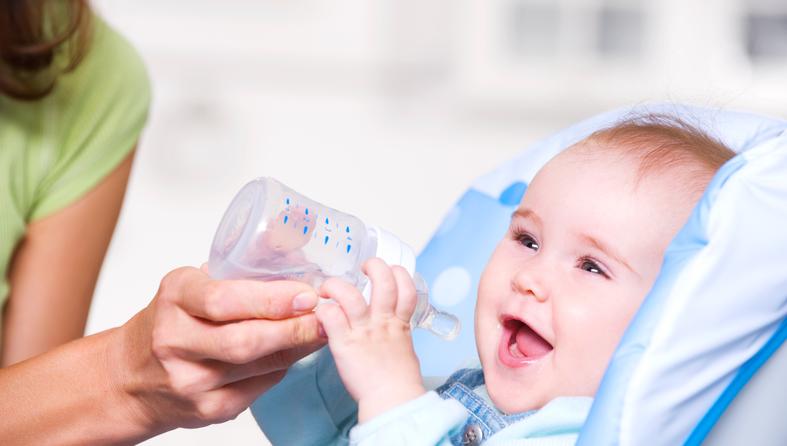
It is necessary to strictly follow the doctor's recommendations about how much fluid to give the baby, at what time and from which dishes. At the moment, there is no convincing evidence that the water that is prescribed to infants for dehydration and fever, from a bottle or from a cup, benefits him.
In severe cases, children are given droppers with special solutions. In other situations, when the baby cannot be attached to the breast, pediatricians recommend using water rather than water to fill the fluid expressed breast milk. You need to give it from a spoon or from a cup.
Even if the newborn vomiting, you can drink it with breast milk - in very small portions and often, so as not to provoke a reverse reflex. If the doctor decides that the baby needs water, he must indicate this in the prescription sheet and determine the dose that is safe for your child.
For babies younger than 4-5 weeks, ordinary water is fraught with the development of additional complications.
- If you add crumbs to water with physiological jaundice, This can slow down the removal of bilirubin from his body, as a result of which the disease will only drag on. Bilirubin is excreted much faster when you consume a sufficient amount of breast milk: it has a laxative effect, so bilirubin comes out with crumbs with stool. If such a need arises, then, in addition to breastfeeding, an infant with jaundice can additionally be given expressed breast milk;
- In a newborn who receives a lot of regular water, the stomach fills and the feeling of hunger is dulled, so he sucks less milk from Mom’s breast. This is fraught with weight loss, because there are no calories in the water, while the child does not get the necessary amount of breast milk;
- If the baby is plentifully doped, there is a risk of intoxication, that is, poisoning with water. This is accompanied by acute edema and leads to a condition that threatens the baby's life. According to the recommendations of the World Health Organization (WHO), healthy children who receive breast milk on demand do not need to drink normal water until they are six months old.
Water regimen for babies
For a child from the age of 4 months, a safe dose of water is considered to be 30-60 ml per day, but only if the baby asks for it and drinks from a cup with the help of parents. If the baby refuses, there is no need to force him to drink - instead, it is better for mother to often offer him breasts.
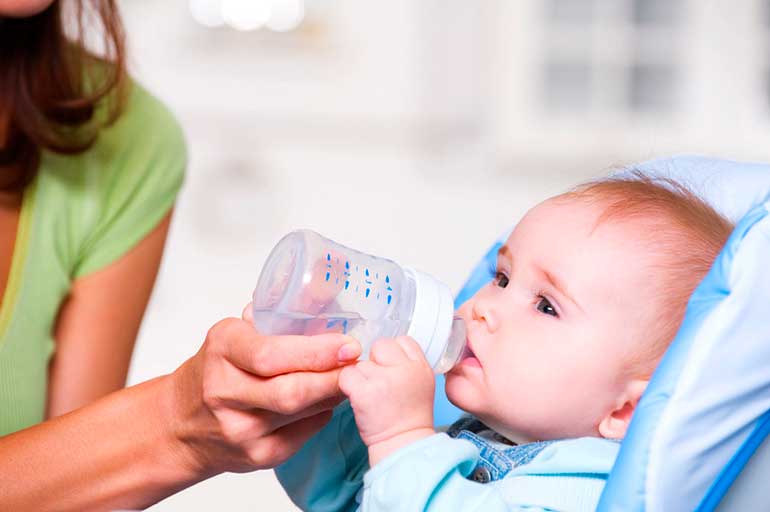
Most babies who are fed only breast milk will be happy to drink even complementary foods, refusing normal water. This is considered quite normal and not dangerous even for children older than six months - of course, provided that they get enough mother’s milk.
Even in extreme heat, babies who are breastfeeding on demand are reliably protected from dehydration. It is only very important that mom herself drank enough water, does not overheat in the sun and does not wrap up the baby so that he does not sweat.
If the temperature outside the window rises above +25 degrees, the child in a diaper and clothes with long sleeves overheats, which leads to excessive loss of fluid. In this case, do not give him water - to prevent dehydration, it is better to simply undress the baby and offer him a chest.
Water becomes truly necessary for the child from the moment when solid food appears in his diet.It is necessary to offer breast milk or water after each feeding, in which there were complementary foods. In most cases, children who were fed only with breast milk only drink a more or less significant amount of water only 1-2 months after the start of feeding.
Usually at the age of 8 months, children are already happy to drink water. Just do not give it too much, because at this age, babies still need a large amount of mother's milk. From 1 year old, the baby already independently determines the amount of water that he needs to quench his thirst. You can offer it to your baby every time after he eats solid foods.
We also read:
Do I need to milk baby?
Do I need to finish babies? Can I give water to a newborn? Is it necessary to give a child drink water, “dill water”, decoctions, teas, juices, etc.? At what age should infants begin to milk?
Question to Dr. Komarovsky: do breast-feeding children need to be dosed with water?
Dr. Komarovsky will explain why WHO does not recommend drinking water and in which cases a child should still be given water. The baby’s behavior will be a criterion for the need to finish drinking: if there is no pathological loss of fluid, he will refuse water, preferring his mother’s breasts, if he literally pounces on a bottle, it means that he needs water - he suffers from overheating or is sick.



